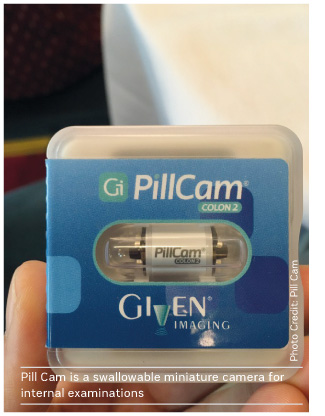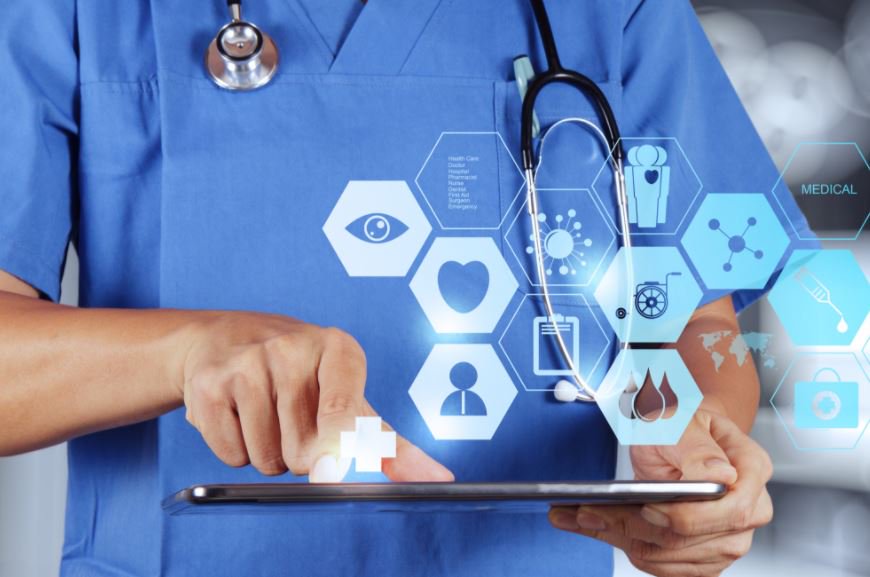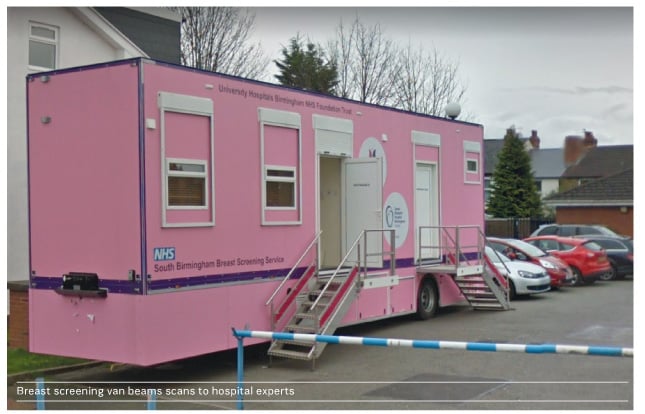How the UK Space Agency is contributing to healthcare.
England’s National Health Service (NHS) is joining forces with the UK Space Agency to tackle four critical healthcare challenges.
The UK Space Agency has launched a multi-million-pound joint initiative with the NHS for healthcare innovators who can demonstrate how technology originally designed for space, from exploration to satellite communications, could be used to improve treatment and care. Previous endeavours to adapt space tech for medical applications include the development of a “pill camera” that can be swallowed by patients to diagnose gut problems, and slippers containing GPS sensors to help track dementia sufferers. The current challenges? Managing long-term conditions, earlier diagnosis of cancer, meeting mental health needs and transforming primary care services. HealthManagement tracked down Emily Gravestock, UK Space Agency Head of Applications to find out more about how healthcare is benefiting from space technology.
When was it evident that space technology could be adapted for healthcare?
Space tech has been used in healthcare for decades (for example the vitamins in baby milk were developed for space use). However, as the opportunities from space have become cheaper and better understood non-experts have had the knowledge and ability to bring them into everyday products. This initiative started where we always try and start – with the customer at the centre.
Some of the most senior Doctors in NHS England saw some of the things that space-tech was doing already and asked to know more. So, back in April, the Satellite Applications Catapult and the UK Space Agency presented some of the existing technologies.
We showcased, amongst others, how patients in remote locations in Scotland can now have endoscopies on their sofa at home rather than having a six-hour round trip to hospital (and have the results monitored in real time if necessary); an application – HappySun – which gives people real time information about their UV exposure based on their sunscreen application, and personal characteristics, their risk factors; and how a diagnostic tool transforms the delivery of pre-hospital care and therefore improves patient outcomes by providing accurate and time-sensitive information to clinicians – Remote Diagnostic Technologies.
This led to a discussion about ‘what if….’ and to NHS England setting out the four biggest challenges they are facing and calling on the technological community to come up with ways that Satellite and Space data and information can support patients and clinicians for the best possible outcomes.

How is the European Space Agency (ESA) involved in this initiative?
The up to £4 million funding for this call is coming through the UK’s investment in the European Space Agency Business Applications programme – in which the UK is the European leader. ESA staff will therefore be involved in assisting in the evaluation of the ideas, the consideration of the technology and acting as Technical Officers for the project, helping it to go from a gem of an idea into a delivered commercial product which can be procured.
There are four categories contestants have to work within (long term conditions management, earlier diagnosis of cancer, transformation of GP and other primary care services and meeting mental health needs). Why the focus on these areas?
Simon Stevens, the Chief Executive of NHS England came up with these topics as those that would make the biggest impact to both patients and staff if there could be technological support. These areas all individually affect millions of people in England, and more than that in the wider United Kingdom. By tackling them, a significant impact can be made in the delivery of NHS services, and the patient experience. One of the features of this call is that ideas can be entered that are brand new and need to be developed, or that are already in delivery in one area and might be considered to be good ‘best practice’ candidates to be upscaled for delivery across the whole of the country.
Is there any chance for ideas which show promise but don’t win the funding to be followed up by healthcare?
Yes, because this is being run in conjunction with ESA. If there are ideas which are not selected as winners in this programme then they can ‘transfer’ their idea into the standard application route for Business Applications through ESA in the UK. In fact, there is a feasibility study programme for ‘Big Data in healthcare’ opening on 2nd October being led by ESA. More information on that is at https://iii.hm/nb1
When will the winners be announced and what will the next steps be?
There will be panels which will sift the ideas in October, followed by face-to-face pitches for the best ideas in each topic area in November. Winners will be announced following those events.




